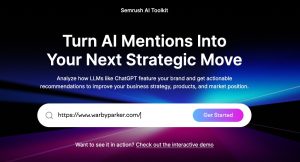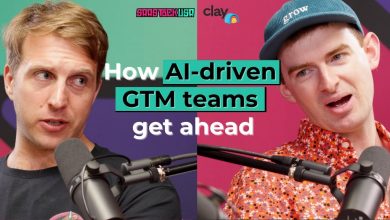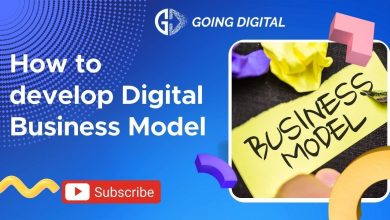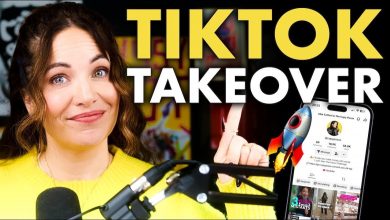The Dramatic Impact of AI On SEO and Search
Search engines have evolved significantly due to AI-driven algorithms like Google’s RankBrain and BERT, which have advanced to better interpret user intent, context, and natural language queries.
 AI has profoundly reshaped the landscape of search engine optimization and the way search engines operate, influencing how content is crafted, optimized, and delivered to users.
AI has profoundly reshaped the landscape of search engine optimization and the way search engines operate, influencing how content is crafted, optimized, and delivered to users.
Search engines have evolved significantly due to AI-driven algorithms like Google’s RankBrain and BERT, which have advanced to better interpret user intent, context, and natural language queries.
This shift has moved the focus away from simplistic keyword matching toward semantic relevance, rewarding content that genuinely addresses what users are seeking. For instance, BERT’s bidirectional context processing ensures that a search like “best shoes for running” prioritizes results that align with the user’s intent, such as product reviews or curated lists, rather than pages stuffed with exact keywords.
 SEMrush offers an AI toolkit service, a solution designed to help businesses monitor and optimize their brand presence across AI-driven search platforms like ChatGPT, Gemini, Perplexity, and Google’s AI Mode.
SEMrush offers an AI toolkit service, a solution designed to help businesses monitor and optimize their brand presence across AI-driven search platforms like ChatGPT, Gemini, Perplexity, and Google’s AI Mode.
It analyzes how large language models (LLMs) feature a brand compared to competitors, tracking visibility, sentiment, and consumer queries, and provides actionable insights to refine business, marketing, and product strategies, identifying market share, audience intent, and competitive gaps.
Zero-Click Searches
In this interview the CEO of Cloudflare discuss the rise of zero-click searches, how AI is disrupting the search economy, the future of content creators, and more.
Zero-click searches are search engine queries where users get the information they need directly on the search results page, without clicking through to a website. The search engine displays the answer prominently, often in a featured snippet, knowledge panel, or other rich result like a map, calculator, or weather forecast.
For example, searching “what’s the capital of France” might show “Paris” at the top of the results, satisfying the query instantly.
This trend has grown due to search engines like Google prioritizing quick answers, with studies suggesting over 50% of searches (as of recent data) end without a click. It’s convenient for users but challenges websites relying on traffic, as it reduces visits. Mobile devices and voice assistants, which often read out these instant answers, amplify this effect.
Additionally, AI has fueled the rise of zero-click searches, where answers appear directly on the search results page through featured snippets, knowledge panels, or instant responses like weather updates or calculations.
Recent data suggests over half of all searches end without a click, reducing traffic to external websites and posing challenges for businesses reliant on organic visits. The proliferation of voice search, powered by AI assistants like Siri or Google Assistant, amplifies this trend by delivering concise, single-answer results, while advancements in image recognition, such as Google Lens, have made visual search more prominent, requiring new optimization strategies like structured data and descriptive alt text.
SEO Strategies for the AI Era
For SEO professionals, AI has introduced both powerful tools and new complexities. Content creation has been streamlined by AI platforms like Jasper or Copy.ai, which generate drafts, meta descriptions, or keyword ideas, though human oversight remains essential to ensure quality and avoid penalties for generic output.
The emphasis on Google’s E-E-A-T principles—Experience, Expertise, Authoritativeness, and Trustworthiness—has intensified, as AI algorithms increasingly favor credible, high-quality content over low-value or spammy pages.
Featured Digital Experts: Exposure Ninjas
The Exposure Ninja‘s are an award-winning digital marketing agency, that create and deliver high-impact digital marketing services for ambitious businesses. In this video they explain why traditional link-building strategies are becoming obsolete — and what Google’s AI systems prioritise instead when evaluating brand authority.
They explain how to measure your current AI visibility using Semrush’s AI Toolkit to benchmark against competitors and identify improvement opportunities, and the ‘integration imperative’ – why successful AI optimisation requires breaking down silos between SEO, PR, content marketing, and social media teams.
Keyword research
Keyword research has also evolved, with AI-driven tools like Ahrefs or SEMrush analyzing search trends and user intent to identify long-tail, conversational keywords suited for voice search or featured snippets. For example, optimizing for specific queries like “how to improve SEO for small businesses in 2025” has become more effective than broad terms like “SEO tips.”
On the technical side, AI-powered crawlers quickly identify issues like slow site speed or broken links, and tools like Screaming Frog provide actionable recommendations to enhance performance, particularly for Google’s Core Web Vitals, which prioritize user experience.
Moreover, AI enables automation of repetitive tasks like A/B testing or backlink analysis and powers predictive analytics in platforms like Google Analytics 4, allowing SEOs to anticipate trends and refine strategies proactively.
AI Challenges
Despite these advancements, AI presents challenges alongside its opportunities. The prevalence of zero-click searches reduces organic traffic, while the democratization of AI tools intensifies competition by enabling more businesses to optimize effectively. Frequent algorithm updates, such as Google’s March 2024 Core Update targeting low-quality AI-generated content, demand constant adaptation.
However, opportunities abound for those who adapt strategically. SEOs can target featured snippets or “People Also Ask” sections to gain visibility in zero-click environments, leverage AI for hyper-personalized or multilingual content to reach diverse audiences, and use data-driven insights to create user-focused strategies.
Ultimately, AI has made search more intuitive and user-centric, raising the bar for SEO professionals to deliver high-quality, authoritative content while navigating a dynamic, AI-driven landscape. If you’d like a deeper exploration of specific areas, such as voice search optimization or particular AI tools for SEO, just let me know!




